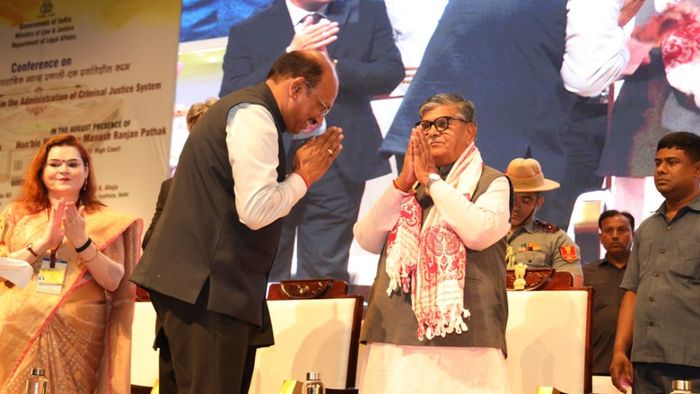Assam: Conference on India's Criminal Justice Reforms concludes in Guwahati
The two-day conference on India's criminal justice system reforms concluded, highlighting three new laws aimed at making the system more humane and citizen-centric. Legal experts, practitioners, and policymakers discussed the new laws, with a focus on outreach initiatives and public sensitization.

- May 20, 2024,
- Updated May 20, 2024, 11:32 AM IST
The two-day conference on "India's Progressive Path in the Administration of Criminal Justice System," organized by the Department of Legal Affairs, Ministry of Law and Justice, concluded yesterday evening. The event brought together legal experts, practitioners, and policymakers to discuss three new laws poised to reform India's criminal justice system.
In his valedictory address, Assam's Governor, Shri Gulab Chand Kataria, emphasized that the conference's insights would significantly impact the effective implementation of these new laws, which represent a shift away from colonial legacies. He highlighted that these reforms make the legal system more humane, particularly in cases involving hit-and-run incidents, crimes against women, and the abolition of sedition laws.
Chief Justice of Gauhati High Court, Mr. Justice Vijay Bishnoi, praised the new laws as a modernization step, though he noted their effectiveness would be assessed over time. He stressed the importance of outreach initiatives to ensure the law benefits every citizen.
Mr. Justice Manas Ranjan Pathak of the Gauhati High Court called for public sensitization and comprehensive training for those implementing the new laws. Similarly, Mr. Justice (Rtd) Mir Alfaz Ali, Vice Chancellor of NLUJA, Assam, underscored the need for a mindset shift among stakeholders to successfully transition from a colonial to a citizen-centric legal framework.
The conference included three technical sessions focusing on different aspects of the new laws. The first session, chaired by Justice Soumitra Saikia of the Gauhati High Court, examined the Bharatiya Nyaya Sanhita (BNS) and its shift from punitive to justice-oriented approaches, including enhanced protections for women and children.
The second session, led by Justice Devashis Baruah, delved into the procedural changes introduced by the Bharatiya Nagarik Suraksha Sanhita (BNSS) 2023, highlighting the importance of integrating technology in judicial processes. The session also discussed the Bharatiya Sakshya Adhiniyam (BSA) 2023, which modernizes evidence law and includes provisions for artificial intelligence and data protection.
The third session, chaired by Justice Arun Dev Choudhury, focused on the procedural changes of the BNSS, emphasizing the importance of technology in ensuring speedy trials and the implementation of zero FIR.
Dr. Rajiv Mani, Secretary of the Department of Legal Affairs, summarized the conference discussions, highlighting the collaborative spirit among participants from across the North Eastern states. The conference concluded with a call for continued collaboration and enthusiasm in implementing these significant legal reforms.
Overall, the event provided a platform for fruitful exchanges and set the stage for transformative changes in India's criminal justice system, aiming to foster accountability, transparency, and the protection of rights for all stakeholders.